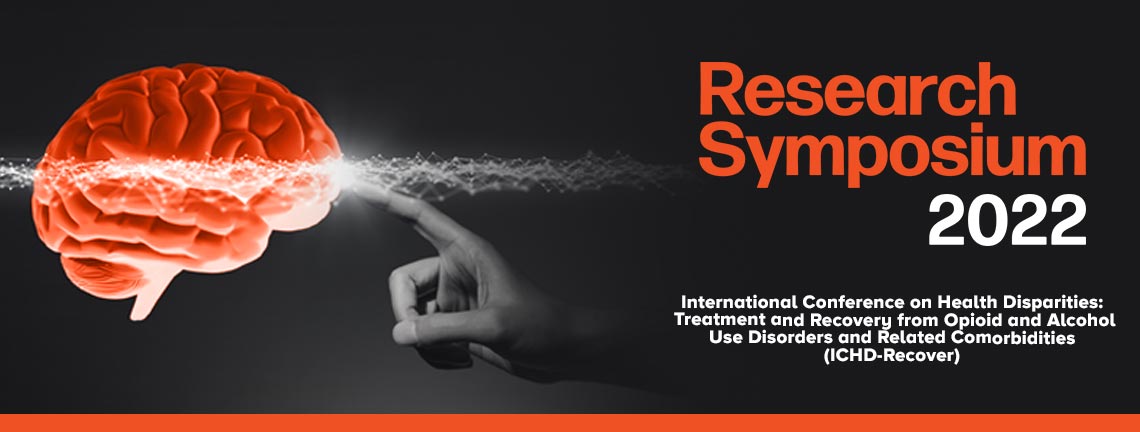
Posters
Presentation Type
Poster
Discipline Track
Biomedical Science
Abstract Type
Research/Clinical
Abstract
Background: One of ten people aged 65 develops Alzheimer’s Disease and it is one of the sixth-leading cause of death in the United States. The Rio Grande Valley (RGV) is mostly constituted by Hispanic/Latinos (93%), a population that has a 1.5X increased risk of AD onset. Nevertheless, there are not enough resources to support people living with dementia and their care partners. This study will leverage research efforts deployed by the RGV Alzheimer’s Disease Resource Center for Minority Aging Research to understand the social representations about the resources, barriers, facilitators, and interests of the RGV community about dementia and Alzheimer’s Disease research.
Methods: Four focus groups were conducted online via Zoom on April 2022 with a total of 15 participants (people living with dementia, caregivers, and community leaders from the RGV). Interactions occurred at their preferred language, mostly in Spanish and the discussion was based on six semi-structured questions about aging and dementia research. Focus groups were translated to English and analyzed using the Consolidated Framework for Implementation Research (CFIR).
Results: Community health workers (promotoras) are one of the most important resources and facilitators in the Valley due to their deep knowledge of the dynamics of the community. The main barrier for dementia and aging research is the lack of information, which leads to fear, and stigmas and ultimately keeping target communities away from the resources. Focus groups served also as a channel of communication. After conducting the focus groups, some of the participants went from being unaware of the presence of Alzheimer’s disease and dementia research in the Valley to deciding about acting toward their prevention and participating in the research.
Conclusions: The information collected during the focus groups will be used to strengthen community engagement strategies and to support the design and implementation of health disparities frameworks to facilitate tailoring of our strategies to maximize the impact of the resources developed to be used in the communities of the RGV.
Academic/Professional Position
Staff
Academic/Professional Position (Other)
Bachelor in Science
Mentor/PI Department
Neuroscience
Recommended Citation
Lopez Lorenzo, Karla Daniela; Pirela Mavarez, Rosa V.; Osuna, Gabriela; Stine, Kendra; Chacon de Alvarez, Nahalie; Garza, Noe; and Maestre, Gladys E., "Understanding the resources, barriers, facilitators and interests about aging and dementia research of community members from the Rio Grande Valley" (2023). Research Symposium. 58.
https://scholarworks.utrgv.edu/somrs/2022/posters/58
Included in
Accessibility Commons, Behavioral Neurobiology Commons, Bilingual, Multilingual, and Multicultural Education Commons, Cognitive Neuroscience Commons, Cognitive Science Commons, Communication Sciences and Disorders Commons, Nervous System Diseases Commons, Neurosciences Commons, Other Social and Behavioral Sciences Commons
Understanding the resources, barriers, facilitators and interests about aging and dementia research of community members from the Rio Grande Valley
Background: One of ten people aged 65 develops Alzheimer’s Disease and it is one of the sixth-leading cause of death in the United States. The Rio Grande Valley (RGV) is mostly constituted by Hispanic/Latinos (93%), a population that has a 1.5X increased risk of AD onset. Nevertheless, there are not enough resources to support people living with dementia and their care partners. This study will leverage research efforts deployed by the RGV Alzheimer’s Disease Resource Center for Minority Aging Research to understand the social representations about the resources, barriers, facilitators, and interests of the RGV community about dementia and Alzheimer’s Disease research.
Methods: Four focus groups were conducted online via Zoom on April 2022 with a total of 15 participants (people living with dementia, caregivers, and community leaders from the RGV). Interactions occurred at their preferred language, mostly in Spanish and the discussion was based on six semi-structured questions about aging and dementia research. Focus groups were translated to English and analyzed using the Consolidated Framework for Implementation Research (CFIR).
Results: Community health workers (promotoras) are one of the most important resources and facilitators in the Valley due to their deep knowledge of the dynamics of the community. The main barrier for dementia and aging research is the lack of information, which leads to fear, and stigmas and ultimately keeping target communities away from the resources. Focus groups served also as a channel of communication. After conducting the focus groups, some of the participants went from being unaware of the presence of Alzheimer’s disease and dementia research in the Valley to deciding about acting toward their prevention and participating in the research.
Conclusions: The information collected during the focus groups will be used to strengthen community engagement strategies and to support the design and implementation of health disparities frameworks to facilitate tailoring of our strategies to maximize the impact of the resources developed to be used in the communities of the RGV.

